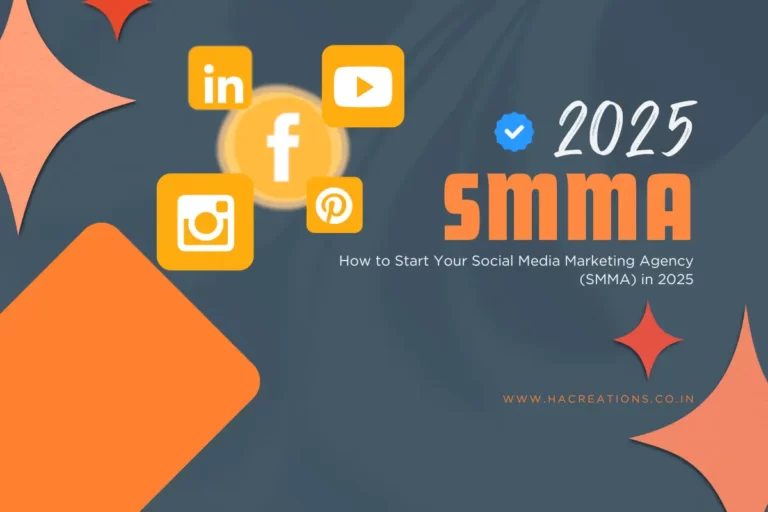Hi! All ,In the era of digital marketing, Pinterest lead generation strategies has emerged as a powerful platform for businesses. Harnessing the visual appeal of Pinterest, combined with strategic approaches, can significantly impact lead generation efforts. Let’s delve into the 12 Pinterest Lead Generation Strategies for 2024 in this article.
I. Introduction
A. Definition of Pinterest Lead Generation
Pinterest lead generation involves utilizing the platform to attract and convert potential customers into leads. It goes beyond just pinning pretty images, focusing on strategically curated content to drive user engagement.
B. Importance in Digital Marketing
With millions of active users, Pinterest provides a unique opportunity for businesses to tap into a visually-driven audience, making it an integral part of a comprehensive digital marketing strategy.
II. Setting Up a Pinterest Business Account
A. Creating an Account
To kickstart your lead generation journey, create a Pinterest business account, ensuring it reflects your brand identity.
B. Optimizing Profile Information
Complete your profile with relevant information, including a compelling bio and a link to your website, enhancing your credibility.
C. Choosing a Business Category
Selecting the right business category helps Pinterest understand your niche, aiding in better content discovery.
III. Creating Compelling Boards
A. Understanding Your Audience
Identify your target audience and tailor your boards to cater to their interests, increasing the likelihood of engagement.
B. Selecting Relevant Board Topics
Choose board topics aligned with your business, ensuring each board resonates with your audience.
C. Crafting Eye-Catching Board Titles
Create enticing board titles that grab attention and clearly convey the theme of each board.
IV. Pinning Strategies for Lead Generation
A. High-Quality Visual Content
Invest in visually appealing content that stands out in the Pinterest feed, encouraging users to explore further.
B. Consistent Pinning Schedule
Maintain a consistent pinning schedule to keep your audience engaged and active.
C. Utilizing Rich Pins
Leverage rich pins to provide additional information directly on the pin, enhancing the user experience.
V. Leveraging Keywords and Descriptions
A. Keyword Research for Pinterest
Conduct thorough keyword research to understand trending terms in your niche, optimizing your pins for discoverability.
B. Writing Descriptions That Convert
Craft compelling pin descriptions that not only describe the content but also encourage action.
C. Incorporating Trending Keywords
Stay updated with trending keywords and seamlessly incorporate them into your pin descriptions for increased visibility.
VI. Collaborating and Engaging with Others
A. Joining Group Boards
Participate in relevant group boards to expand your reach and engage with a broader audience.
B. Collaborating with Influencers
Collaborate with influencers in your niche to tap into their follower base and build credibility.
C. Engaging with Followers
Actively engage with your followers, responding to comments and messages, fostering a sense of community.
VII. Utilizing Pinterest Ads for Lead Generation
A. Setting Up Pinterest Ads
Explore Pinterest Ads to amplify your reach, targeting specific demographics to maximize lead generation.
B. Targeting Options for Ads
Fine-tune your ad targeting options to ensure your content reaches the most relevant audience.
C. Designing Effective Ad Creative
Craft visually compelling ads with clear calls-to-action, prompting users to take the desired actions.
VIII. Analytics and Monitoring Performance
A. Using Pinterest Analytics
Regularly monitor Pinterest Analytics to gain insights into the performance of your pins and boards.
B. Adjusting Strategies Based on Data
Adapt your strategies based on analytics data, refining your approach for optimal results.
C. Monitoring Lead Generation Metrics
Focus on lead generation metrics, tracking the number of leads generated through Pinterest activities.
IX. Case Studies and Success Stories
A. Showcasing Real-Life Examples
Highlight real-life case studies and success stories of businesses that have effectively utilized Pinterest for lead generation.
B. Extracting Lessons from Success Stories
Identify key takeaways from success stories and apply them to your own Pinterest lead generation strategy.
C. Applying Insights to Your Strategy
Implement insights gained from case studies, tailoring them to align with your business goals and objectives.
X. Staying Updated with Pinterest Algorithm Changes
A. Understanding Algorithm Updates
Stay informed about changes in the Pinterest algorithm, adapting your strategy to remain in sync with platform dynamics.
B. Adapting Strategies Accordingly
Modify your lead generation strategies based on algorithm updates to ensure sustained success.
C. Tips for Future-Proofing Your Approach
Future-proof your Pinterest lead generation approach by staying agile and embracing emerging trends.
XI. Common Mistakes to Avoid
A. Overlooking Profile Optimization
Avoid neglecting the optimization of your Pinterest profile, as it forms the foundation for successful lead generation.
B. Neglecting Consistency in Pinning
Consistency is key; don’t underestimate the impact of a regular pinning schedule on audience engagement.
C. Ignoring Analytics and Feedback
Failure to analyze analytics and user feedback can hinder your ability to refine and optimize your strategy.
XII. Benefits of Pinterest Lead Generation
A. Increased Website Traffic
Pinterest lead generation can drive substantial traffic to your website, boosting overall visibility.
B. Building a Strong Online Presence
A robust Pinterest presence contributes to building a strong online brand image, enhancing credibility.
C. Diversifying Lead Sources
Diversify your lead sources by incorporating Pinterest into your overall lead generation strategy.
XIII. Conclusion
A. Recap of Key Pinterest Lead Generation Strategies
Summarize the key strategies discussed, emphasizing their collective impact on successful lead generation.
B. Encouragement for Implementation
Encourage readers to implement the strategies discussed, emphasizing the potential for positive outcomes.



